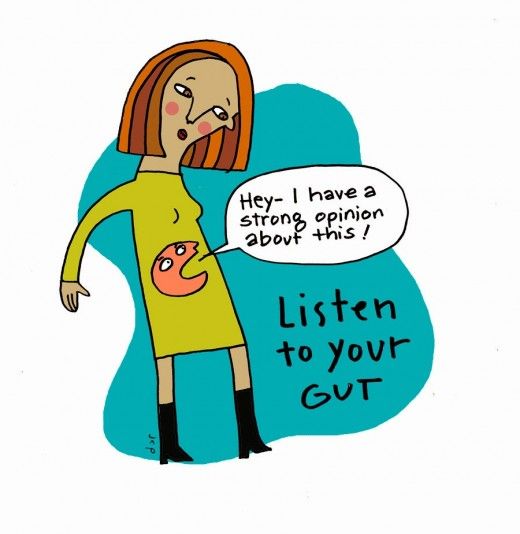
What Exactly Is Gut Health?
The concept refers to the functioning of the gastrointestinal tract, also known as the GI tract. These functions include the absorption of nutrients from food intake, the elimination of waste, immune functions to protect the body from harmful infections, and mental health. Stomach problems are among the most common health issues people suffer from. Almost everyone experiences some type of gut health issue, like constipation.
In my study of nutrition, I learned that it is the mother of all diseases. It’s the root cause of many problems, yet people don’t tend to take it seriously. Researchers have found a connection between the stomach and mental health, indicating that gut health directly impacts mental well-being and vice versa. However, most people are unaware of this. They tend to think only of physical problems and neglect their mental health. Stomach issues are often the most common symptoms of stress and anxiety.
Like the brain, the stomach is also full of nerves, known as the enteric nervous system (ENS). The stomach is often called the second brain, according to research from Harvard. The stomach contains the same neurons and neurotransmitters as the central nervous system. This shows that the connection between the stomach and the brain is much deeper than previously assumed, and it should be taken care of. Our gut health can significantly impact our mood swings, thought processes, and behavior; it can also alter our brain chemistry, triggering anxiety and stress.
The brain and the gut are connected and communicate via nerves and chemical signals. They are so intertwined that they can actually feel each other’s pain. If you are suffering from a condition affecting your mental health, it may also involve your gut and vice versa. Numerous studies show increasing evidence that host-microbe interactions present in the gut play a pivotal role in maintaining balance among all the body systems essential for survival and proper functioning; this state is called homeostasis.
Alterations to the gut microbiome can affect behaviors to the brain, including mood swings, pain, and cognition. Dysfunction of the microbiome-brain-gut axis has been implicated in stress- disorders such as depression, anxiety, and irritable bowel syndrome (IBS), as well as neurodevelopmental disorders such as autism.
Symptoms of an Unhealthy Gut
Symptoms of an unhealthy gut include skin problems, abdominal pain, weight changes, food intolerance, autoimmune diseases, diarrhea, mood swings, food cravings, constipation, nausea, bloating, brain fog, fatigue, and joint pain. To improve gut health or treat IBS, many options and over-the-counter medicines are available. If these issues aren’t addressed, they can lead to more severe conditions that may contribute to mental health issues like stress and anxiety, creating an endless cycle of problems. The same is true for stress management: being stressed about something you cannot control can lead to either diarrhea or constipation, which can trigger IBS, and so the cycle begins again.
The Role of Exercise
Diet plays a crucial role in gut health. To maintain good gut condition, the first step is to have a proper meal plan and an exercise routine. Working out for 30 minutes a day can greatly benefit both physical and mental health. A light walk, weight training, or 15–20 minutes of high-intensity interval training (HIIT) 2 or 3 times a week is all you need. Choose a type of physical activity that you enjoy; don’t follow trends. Whether it’s cycling, boxing, jogging in the park, using a treadmill for inclined steady-paced walking, or swimming, find what works for you.
Meal planning is also essential. Make your meal plan centered around breakfast, as it is known as the most important meal of the day. What you eat will define how your day goes. Sometimes, when people skip breakfast, they overindulge at lunch and dinner. Heavy meals just before bed are not advisable, as digestion slows while you sleep, causing bloating, discomfort, and heartburn. Incorporate protein into your meals. The more protein you consume, the more muscle mass you build while exercising, and the more muscle you build, the more fat you burn. Consider taking probiotic supplements or incorporating foods that promote the growth of healthy gut bacteria.
Conclusion
The main takeaway is that you need to take care of your body to take care of your mind, and vice versa, as they are interconnected. If one suffers, so does the other. It’s like a unique love story; one cannot thrive without the other. Both must work hand in hand to support the proper functioning of the whole body; otherwise, everything will eventually come crashing down if not looked after properly.